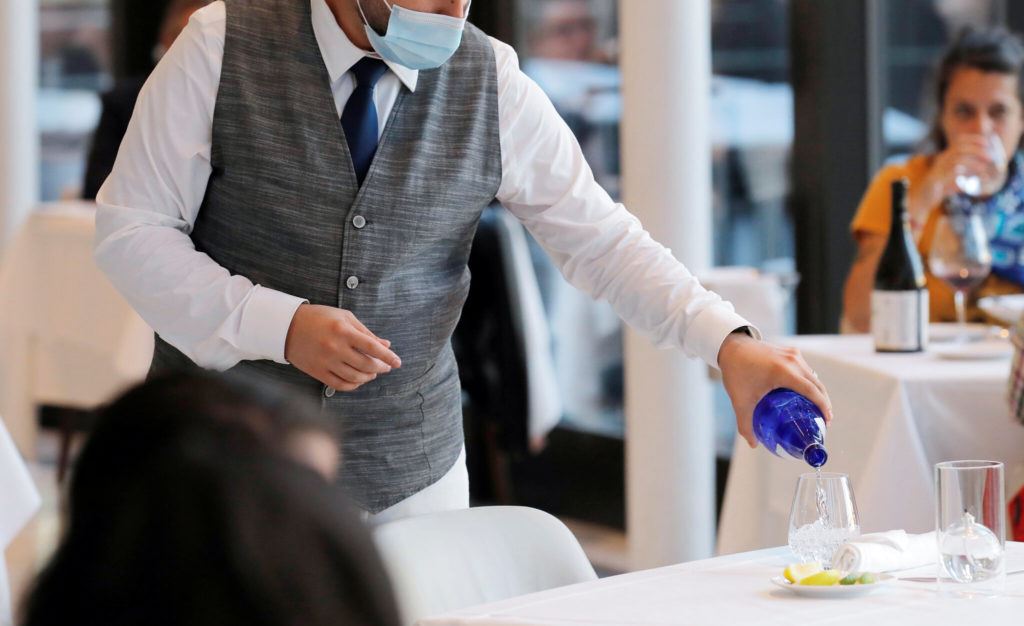
Photo courtesy of Andrew Kelly/Reuters and The New York Times
Workers in the service industry, ranging from restaurant servers to salon hairdressers, constituted over half of all payroll gains last month. The hospitality industry was at the forefront of this increase. Not only did restaurants and bars create one out of four jobs in June, but they are now seeing larger wages than other employees as well, with hourly wages rising to 7.9% from their pre-pandemic level.
As a whole, businesses in the service industry accounted for 850,000 jobs last month, 343,000 of which hospitality businesses added alone. This rise is inherently tied to the ongoing reopening developments happening around the country. As certain major cities have lifted virtually all Covid-19 restrictions, with some having never enforced strict measures to begin with, it’s not surprising that the hospitality sector accounted for almost 50% of all jobs added in the U.S. in the first six months of 2021.
With that being said, the pandemic unemployment assistance certainly complicated the process of bringing hospitality workers back to their jobs. With the added $300 in weekly aid, food-service workers were enjoying more income by staying safely at home instead of working through the pandemic. As such, employers have had to find other ways to attract workers back to the workplace. Some have turned to increasing wages, reaching nearly $20 an hour in cities such as San Francisco, while others have been offering hefty bonuses, including fast-food restaurants such as Burger King who have advertised $1,500 signing bonuses; some have even resorted to paying employees overtime pay for the entirety of their shift if they are coming from another job.
Overall, these developments have given hospitality workers a substantial amount of leverage as we enter this new period of recovery. Demand only continues to climb as diners seek to eat out now in fully reopened restaurants and bars. But in order to meet that demand, workers need to come back to an environment that is sustainable. All of these increases in wages and bonuses are not projected to last. The labor market is expected to return back to normal by the end of the year, at which point employees’ bargaining power will diminish back to its pre-pandemic level. The wage raises might very well be one-off, which would mean that employees won’t enjoy wage bumps or rehiring at a higher wage next year. Conversely, if restaurants choose to continue operating with such high labor costs, they will need to raise their food prices for customers; this will only sustain higher inflation and cause their profit margin loss to narrow should they not pass on all of their costs. As more sectors are set to reopen by the beginning of September, restaurants and bars will no longer need to compete so fiercely for personnel. With a larger pool of workers, incentives will no longer be necessary. And let’s not forget that employers will inherently always have the upper hand when determining schedules and health care and retirement benefits.
As always, however, projected trends are uncertain; this wave of increased benefits coupled with having to navigate pandemic recovery might allow hospitality workers to be able to restructure the employer-employee relationship for the long term. If policymakers are able to push the $15 federal minimum wage, workers will be able to enjoy higher wages no matter where they are situated. Additionally, experts are now advising employees to secure their freedom by joining a union and bargaining collectively in order to balance out power relations. Again, if Congress passes President Biden’s American Jobs Plan, bargaining power and union membership will also become widespread.
Founded by attorneys Andreas Koutsoudakis and Michael Iakovou, KI Legal focuses on guiding companies and businesses throughout the entire legal spectrum as it relates to their business including day-to-day operations and compliance, litigation and transactional matters.
Connect with Andreas Koutsoudakis on LinkedIn.
Connect with Michael Iakovou on LinkedIn.
This information is the most up to date news available as of the date posted. Please be advised that any information posted on the KI Legal Blog or Social Channels is being supplied for informational purposes only and is subject to change at any time. For more information, and clarity surrounding your individual organization or current situation, contact a member of the KI Legal team, or fill out a new client intake form.
The post Service Industry Workers See Continued Gains In “Post-Pandemic” Climate appeared first on KI Legal.
